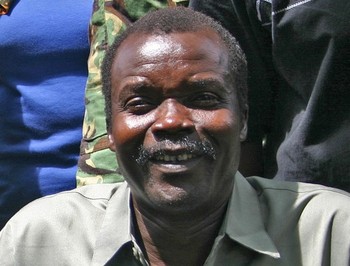Sudan denies harboring Uganda’s LRA’s fugitive leader
April 27, 2013 (KHARTOUM) – The Sudanese army strongly denied allegations that it is providing shelter to the fugitive Ugandan leader of the Lord Resistance Army (LRA), Joseph Kony.

Until early this year, according to the report, Kony and some of his commanders were operating in Kafia Kingi, a disputed area along the Sudan-South Sudan border where African Union troops tasked with catching Kony don’t have access.
But SAF spokesperson Colonel al-Sawarmi Khalid Sa’ad told Sudan official news agency (SUNA) that the the report is “baseless and rejected”.
“SAF has no renegade leaders. It is a united army and has no place for individual acts. SAF has no interest in adopting or sheltering rebels from other countries” he added.
During the two-decades Sudanese civil war, which ended in 2005 with a peace deal granting South Sudan the right to seceded in 2011, Uganda sided with the SPLM rebels who now form the government in Juba.
In response, Khartoum was widely accused of backing the LRA, which began operating in South Sudan and elsewhere in Central Africa having been forced out of northern Uganda by the Uganda People’s Defense Forces (UPDF).
The LRA was founded by Kony in his Acholi community amid repression from the UPDF. Its stated aim is to overthrow the government in Kampala and install the Bible’s Ten Commandments.
Across Uganda, CAR, DRC and South Sudan the LRA is accused of massive human rights abuses including rape, mutilation, murder and the recruitment of child soldiers.
However, the group is believed to only have a few hundred soldier’s left due to desertions and combined regional attempts – recently backed by United States army advisors and African Union troops – to end the conflict militarily.
(ST)
- Resolve: “Hidden In Plain Sight: Sudan’s
- Harboring of the LRA in the Kafia Kingi Enclave, 2009-2013″
- New Vision – ‘Kony could return to Sudan any time’
- AP – Report: Sudan army offering safe haven to the fugitive African
- warlord Joseph Kony
- AFP – Sudan harboring Ugandan warlord Kony: report
- Catholic Radio Network – HUNTERS RESCUE LRA ABDUCTEE IN TOMBURA COUNTY
